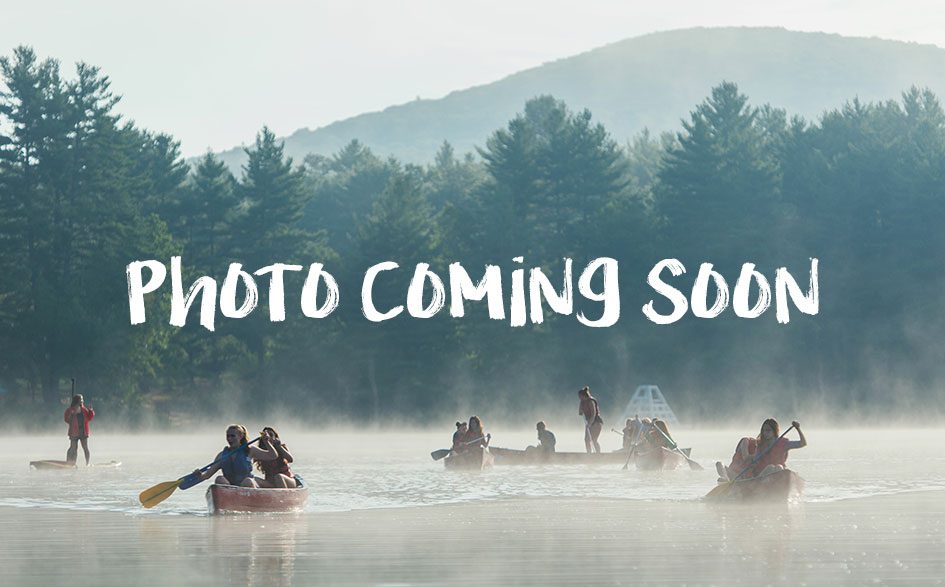Sarah Coleman’s Reflection on the Ramah JNF Alternative Break in Israel

In early January, Sarah Coleman joined 23 other Ramah staff from around the country, on an alternative break program in Israel, co-organized by Ramah National and JNF. Participants spent the week volunteering at various sites throughout Israel and learning how to bring the ideas and experiences of the trip back to their Ramah camps.
The following is Sarah’s reflection on the program:
Elevating Ourselves as Jews
A few sentences are not enough to summarize my experience on the Ramah/JNF trip, nor is one trip to Israel a complete picture of this beautiful country. This trip was truly eye opening and helped me to see Israel in a new light. My past few trips to Israel have been more tourist-y, merely touching the surface and experiencing the “Kodak moment”. On this trip, I really saw Israel as an intricate, multi-faceted country with an expansive network and community. Israel is one of the most culturally diverse, technological, spiritual and politically controversial countries in the world. However, it is founded upon a few key Jewish values. Much of Israeli society is founded on Jewish values like g’milut chasadim, tikkun olam, chesed, ahava and kehilah. Israel incorporates these values into everyday practices and programs.
Too often society views Israel’s problems as strictly political, but there are internal conflicts, too. Israel has an extremely diverse population. Not everyone is fully functioning or well off. However, the community service work we did this trip showed me that Israelis who are in a good place help those who aren’t. Work done at Aleh Negev, a place we visited, is a prime example of the power of our Jewish values.
The most profound and moving experience was at Aleh Negev. Aleh Negev is a state of the art rehabilitation and vocational training center center for Israelis with a wide array of special needs. Over 100 people live there and are helped every day. Aleh Negev accepts all types of people, ages, religions and socio-economic backgrounds. It is predominately funded by the Israeli government and outside fundraising. None of the residents have to pay for their stay and the facility is better than any private institution in America.
One specific program they have is hydrotherapy, bringing the residents and physical therapists together in a state of the art pool. For example, people that on land who are confined to a wheelchair can miraculously learn to walk in the water thanks to gravity and the laws of physics. I had the chance to witness the residents’ smiles and physically therapy progress in the pool. We played games, laughed, and worked on their motor skills. This unbelievable experience showed an aspect of Israeli culture that I had never been exposed to.
It is also worthy to note how much of a community there was at Aleh Negev. The employees are so kindhearted and generous with their patience and concern for the residents. There was also a kindergarten for “mainstream” children at the rehabilitation center. This forms a community for all Israelis regardless of their situation. Some of the higher functioning special needs students spend part of the school day in this kindergarten. Aleh Negev is innovative with their program and this teaches the children from a young age about respecting others and embracing adversity. The integration of children in kindergarten as well as the expansive special needs program made me think of what we have right at Camp Ramah.
The Tikvah program at Camp Ramah New England is outstanding and unparalled to other camps. We are so fortunate to have this. Camp puts a lot of effort into integrating the Tikvah chanichim with the other campers. From Bogrim Buddies to Amitzing CITs, to just hanging out with an Amitzimer on Shabbas, we really have a larger community. Both the chanichim and counselors benefit from these interactions; we love and respect people very different than us.
I am so happy to have found out about Aleh Negev. My hopes are to build a bridge between it and our Tikvah program. Perhaps we can learn from techniques used at Aleh Negev, or teach our chanichim about other people in the world striving to teach the same values of chesed and kehilah. It's also interesting to note that Aleh comes from the Hebrew root meaning to raise/go up, while Ramah means heights. It is fitting that both organizations elevate our connection and experience as Jews.
I just want to end by saying thank you to all of those involved with this trip, especially Ben Greene and Rami Schwartzer from our very own CRNE. I encourage other counselors to go on this inspiring trip. It really will change your view of Judaism and the importance and strength of our values worldwide.